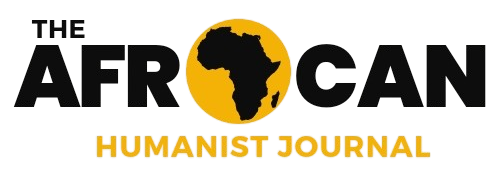Despite decades of international support, funding, and encouragement from global secular organisations like Humanist International, organised humanism in Africa has made very little meaningful progress.
While the ideals of humanism promote reason, compassion, justice and ethical living, the reality on the ground has been quite the opposite. In many cases, what we have witnessed is a movement hijacked by personal interests, weakened by internal divisions, and ultimately failing to connect with the very communities it aims to liberate.
Poor leadership
A key reason for this failure is the lack of ethical leadership. Across several African countries, individuals who present themselves as pioneers and leaders of humanism have unfortunately not lived up to the moral standards they preach. Leadership in many humanist organisations has become synonymous with entitlement, ego, and a desperate desire for control. Some leaders refuse to step aside, even when their time has passed, fearing that others might outshine them or bring reforms that would expose long-standing mismanagement. As a result, promising young minds are often side-lined or forced to remain silent, lest they be seen as a threat to the status quo.
This obsession with power has created an atmosphere of suspicion, rivalry and betrayal. Rather than cooperating and building strong coalitions, many humanist groups operate like small private empires. They compete for visibility, scramble for donor funding, and guard their influence with hostility. It is not surprising to find organisations with similar missions actively working against one another, simply because of personal grudges or fears of being outdone. In such an environment, the spirit of collective growth is lost. What remains are fractured groups that are more focused on survival than impact.
Opportunism
Another problem is the rise of false or opportunistic humanists. These are individuals who speak the language of reason, science and secularism, but whose commitment to the cause is superficial. They learn the right vocabulary, attend the right conferences, and know how to appeal to foreign donors, but their actions betray a very different agenda. Instead of building schools, running community programs, or advocating for human rights, they are more concerned with selfies, titles, and securing the next grant. To the international observer, these groups may appear active and vibrant. But to those within their own communities, they are often seen as detached, elitist, and self-serving.
Donor dependency
Donor dependency has made this situation worse. With much of the funding for African humanist organisations coming from abroad, the focus tends to shift from grassroots engagement to donor appeasement. Reports are written to impress funders, not to reflect the truth. Projects are designed to tick boxes rather than address real local needs. In some cases, organisations spring into action only when funding is available, and go silent as soon as the money runs out. This kind of behaviour creates a culture of dishonesty and short-term thinking. It also alienates local communities, who feel used and abandoned by movements that claimed to represent their interests.
Cultural resistance to humanism is another obstacle, but it is one that could be tackled more effectively if the movement was united, strategic and principled. Instead, the lack of internal discipline and the endless power struggles give critics more ammunition. Religious leaders, for instance, often label humanists as immoral or confused. And when stories of misused funds, ego-driven leaders or internal fights emerge, it only confirms those stereotypes. In such a hostile environment, integrity should be the movement’s strongest weapon. Sadly, it is often the first thing to be compromised.
Limited successes
Of course, there have been isolated successes. A few schools, shelters and educational programmes have emerged under the humanist banner, especially in Uganda, Nigeria and Ghana. Some individuals have done remarkable work in defending accused witches, supporting LGBTQ+ rights, and promoting science-based education. But these efforts, while commendable, are scattered and rarely sustained. They are the exceptions, not the rule. There is no coordinated continental agenda, no shared vision, and no strong networks that could amplify these successes into a true movement.
The way forward
The way forward must begin with honest self-reflection. African humanists must ask difficult questions about their leadership, their motives, and their impact. They must prioritise transparency, embrace succession, and allow diversity in leadership. Instead of building brands around individuals, they must build institutions that can outlive them. Donors too must rethink how they support humanist work in Africa. Rather than rewarding good public relations, they should fund structures, accountability systems, and long-term plans.
Until these changes happen, organised humanism in Africa will remain a beautiful idea held hostage by personal ambition and institutional failure. It will continue to survive in theory, but struggle to thrive in practice. And the very people it aims to empower will keep asking the most important question of all: if you cannot lead yourselves with honesty, how can you lead us with hope?
By Amina Kamara


